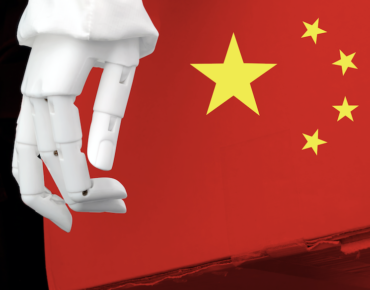AI is Key to China Infrastructure Plan, as is AI Talent

via Shutterstock
China’s latest set of technology goals for the next decade have been assimilated into an initiative launched this spring under the rubric, “new infrastructure.” Collectively, the aspirational blueprint includes 5G wireless and the Internet of Things, big data and AI as well as converged infrastructure aimed at a menu of smart applications ranging from energy and transportation to spurring R&D and product development.
Chinese technology giants such as Alibaba (NYSE: BABA) and Tencent (OTCMKTS: TCEHY) quickly jumped on the new infrastructure bandwagon. This week, Chinese AI and search conglomerate Baidu (NASDAQ: BIDU) joined the growing list by announcing plans to train five million AI developers by 2025 while deploying an equal number of AI cloud servers across its 10 datacenters by 2030.
Beijing’s infrastructure initiative “will be the new driver for China's economic development in the coming decades, and emerging technologies such as AI, cloud computing, 5G, IoT and blockchain are its key technological pillars,” said Baidu CTO Haifeng Wang.
“As an AI platform company, Baidu will use its many achievements and years of practical experience in AI technology to help speed up the development of new infrastructure and facilitate implementation of AI so that all industries can leverage it for unprecedented new momentum."
The Beijing-based tech titan notes that its goal of five million AI cloud servers amounts to about half of global shipments during 2019.
Considered China’s leading AI developer, Baidu touts its PaddlePaddle deep learning platform used to develop AI applications delivered by Baidu Brain via Baidu Cloud, China’s largest public cloud service. As is its AI cloud.
Along with more than 10,000 worldwide AI patents, Baidu claims the largest number of Chinese patents in areas ranging from speech recognition and natural language processing to knowledge graphs and self-driving vehicles.
It also claims a growing list of AI chip sets, including its Kunlun chip for industrial applications and its Honghu voice chip. Baidu recently announced a manufacturing deal with Samsung Electronics (KRX: 005930) to begin manufacturing the Kunlun cloud-to-edge AI chip earlier this year.
Beyond technology development and infrastructure deployment is the emerging issue of nurturing AI talent. China is pouring vast resources into training the next generation of AI developers, and Baidu said it is funding deep learning and other AI courses at China’s top university.
A recent study tracking global AI talent found the U.S. nevertheless maintains a large lead in cutting-edge AI research, with nearly 60 percent of leading AI experts working for U.S. companies and universities. By far the largest employer is Google (NASDAQ: GOOGL), whose Google Brain and DeepMind units accounted for more than 90 scientific papers during last year’s Conference on Neural Information Processing Systems.
Researcher MacroPolo, which tracks Chinese economic development, noted in its AI studythat many top researchers at U.S. companies and universities are immigrants. The majority are Chinese researchers who come to the U.S. to study and work.
“Without researchers from abroad, America’s lead on [AI] talent would likely be considerably diminished,” MacroPolo concluded in its recent analysis of AI conference research papers. (The think tank’s “AI talent tracker” is here.)
Based on where AI researchers earned their undergraduate degree, the analyst found that 29 percent come from China while only 20 percent earned degrees at U.S. universities.
By contrast, the vast majority of Chinese AI Ph.D students—88 percent—work in the U.S. after completing graduate school, MacroPolo reported.
After Google, the top five institutions for AI research are Stanford University, Carnegie Mellon University, Massachusetts Institute of Technology and Microsoft Research, in that order. Only two Chinese institutions, Tsinghua University and Peking University, are among the top 25, according to the MacroPolo study.
The technology analyst noted that U.S.-China trade and technology tensions along with the pandemic has fueled proposals limiting U.S. immigration, a move that analysts warn could threaten the China AI research pipeline. For example, proposed legislation would eliminate visas for Chinese graduate students working in STEM fields. Another bill would suspend a U.S. program that allows foreign students to work in the U.S. for up to three years after graduation.
The current U.S. lead in AI research “could be disrupted by policy decisions that put a halt to, or even reverse, these global flows,” the AI study concluded. “Such decisions could have the unintended consequence of providing more opportunities for other countries—both U.S. allies and competitors—to absorb this highly mobile pool of AI talent.”
Related
George Leopold has written about science and technology for more than 30 years, focusing on electronics and aerospace technology. He previously served as executive editor of Electronic Engineering Times. Leopold is the author of "Calculated Risk: The Supersonic Life and Times of Gus Grissom" (Purdue University Press, 2016).












